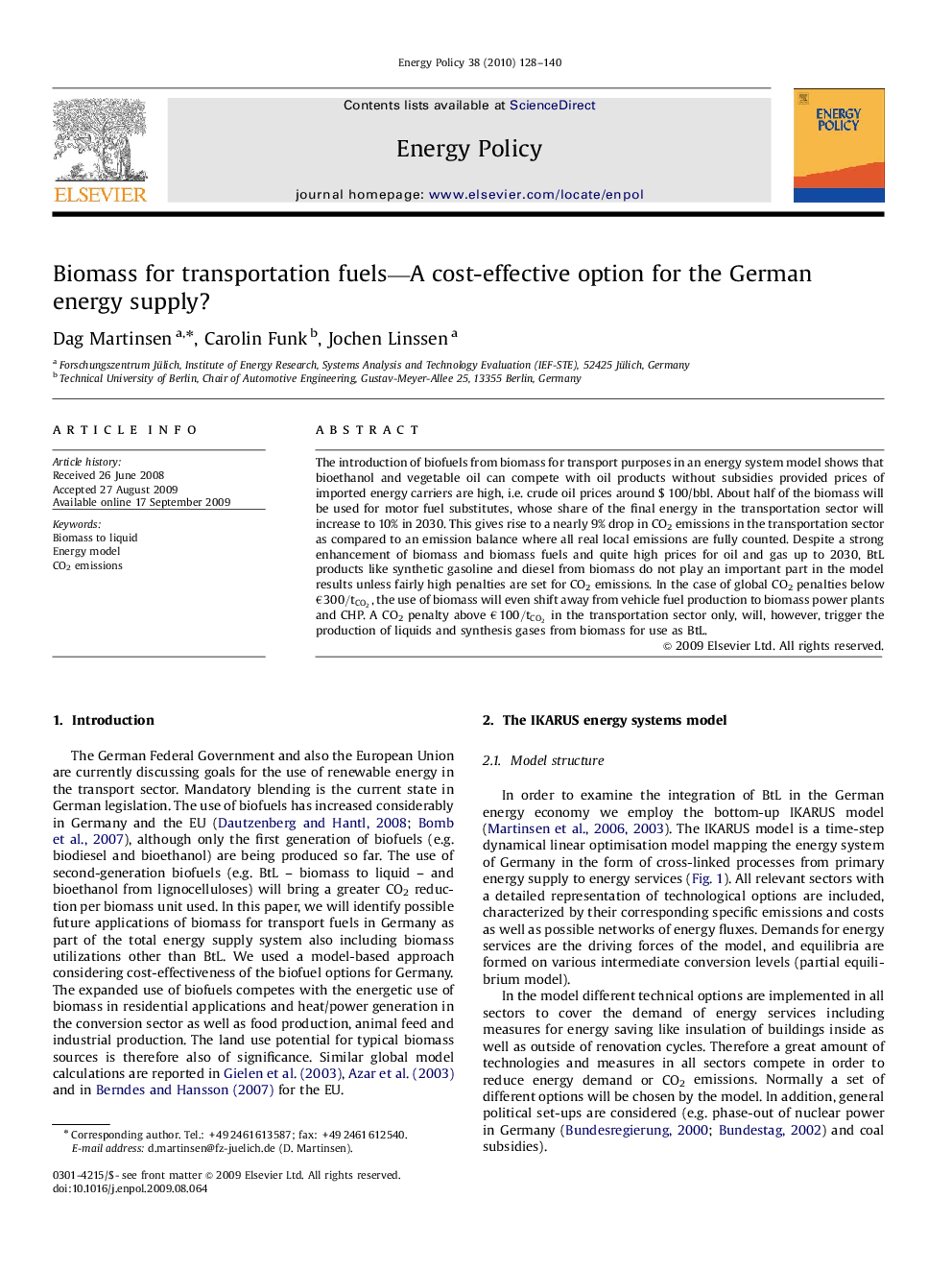| Article ID | Journal | Published Year | Pages | File Type |
|---|---|---|---|---|
| 995088 | Energy Policy | 2010 | 13 Pages |
The introduction of biofuels from biomass for transport purposes in an energy system model shows that bioethanol and vegetable oil can compete with oil products without subsidies provided prices of imported energy carriers are high, i.e. crude oil prices around $ 100/bbl. About half of the biomass will be used for motor fuel substitutes, whose share of the final energy in the transportation sector will increase to 10% in 2030. This gives rise to a nearly 9% drop in CO2 emissions in the transportation sector as compared to an emission balance where all real local emissions are fully counted. Despite a strong enhancement of biomass and biomass fuels and quite high prices for oil and gas up to 2030, BtL products like synthetic gasoline and diesel from biomass do not play an important part in the model results unless fairly high penalties are set for CO2 emissions. In the case of global CO2 penalties below €300/tCO2, the use of biomass will even shift away from vehicle fuel production to biomass power plants and CHP. A CO2 penalty above €100/tCO2 in the transportation sector only, will, however, trigger the production of liquids and synthesis gases from biomass for use as BtL.
